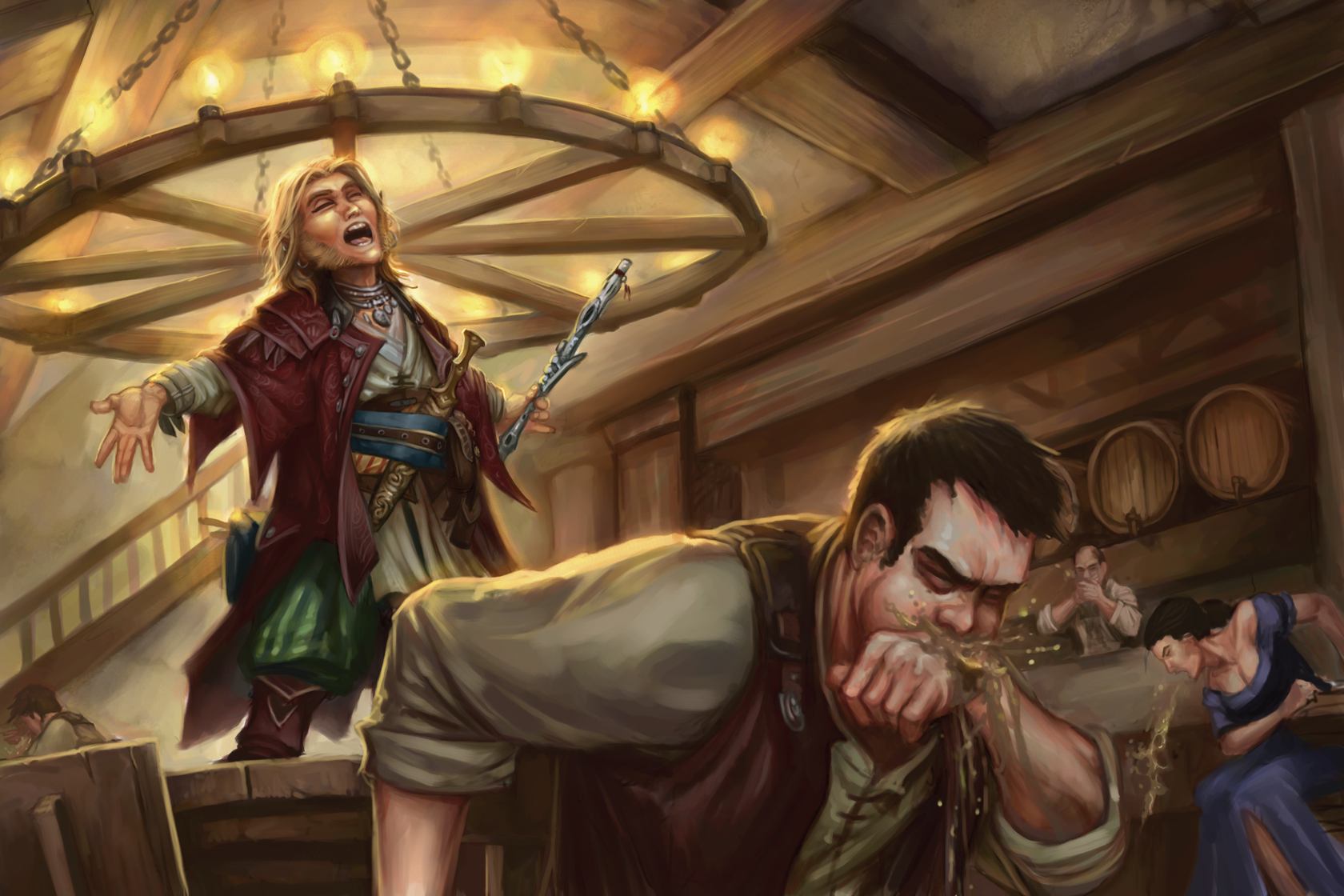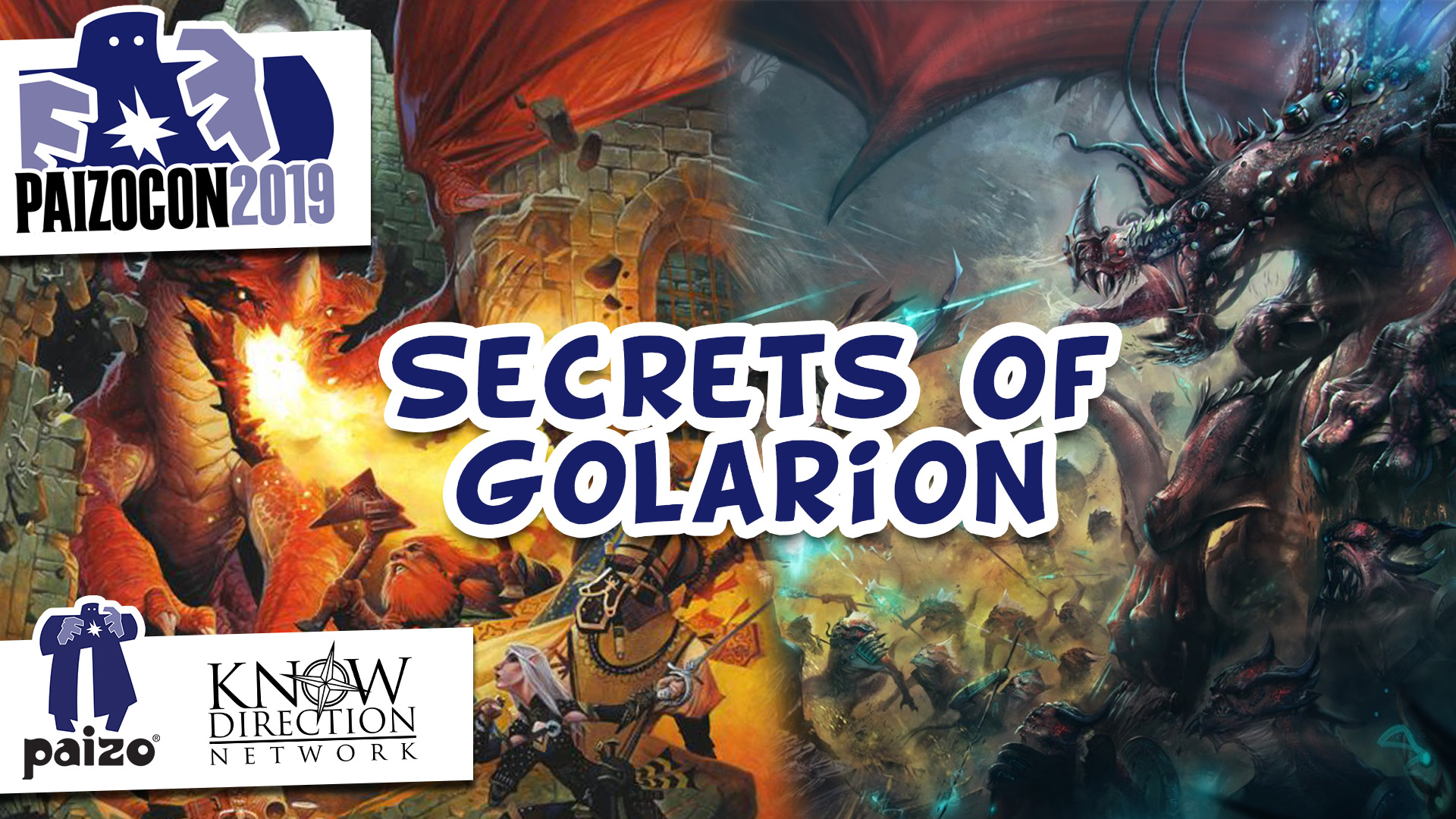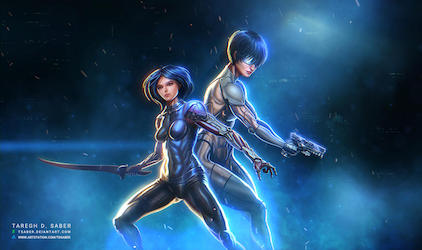Keeping with the plan from two weeks ago I thought I’d hit and expand on the next short piece of advice from my bullet point list: Spotlight the PCs. Your player’s characters should reside at the center of your story. They are the protagonists of the campaign and probably the heroes of the most important conflict to affect your world (until the next campaign). As simple as this advice is on the surface I’m surprised at how often GMs forget this point in both large and small ways.
The larger ways GMs fail their players are rarer in my experience especially as GMs get to practice and improve their craft but they still happen frequently enough they bear mentioning.
Mary Sues and Know-It-All NPCs
Non-player characters should be (for the most part) be relegated to two main roles: Villain or Support. Villains are masterminds, monsters, or thugs the PCs need to somehow defeat and overcome. They may need to be killed in battle or talked down from violence. There are numerous ways the PCs may overcome a villain but the point is that the villain is essentially an obstacle the PCs need to try and overcome.
Right now though, I’m focusing on NPCs in the support role. Support NPCs are the agents and allies the PCs can rely on for aid, council, and to have their backs when everything goes sideways. The PCs may not be able to put out every fire and be everyplace someone is needed. Support NPCs can fill that niche letting the PCs be where the action is heaviest.
Unfortunately, sometimes GMs get carried away. Sometimes we fall in love with our own fictional creations, sometimes we realize the finely crafted story we have in our minds needs a super-powered hero and we “CAN’T” give that kind of power to a single PC. Whatever the reason we include a superhero who outshines the PCs. The NPC might be a far better thief than the party rogue, a more captivating persona than the party envoy, or worse a master of skills who makes the entire party obsolete.
The other problem is the know-it-all NPC. Not every spotlight scene is stolen because the NPC can kill everything easily sometimes they just know so much the only way forward is the NPCs way. Imagine a campaign where the PCs are hired by a strange old wizard who tells the PCs where to go, what to do when they get there. He talks over characters whose theories are wrong to set them on the right course. He always knows one or two more facts than the PCs when they make knowledge rolls…and that extra knowledge is always more pertinent to events than what the players have.
Sometimes players will encounter a game with both problems. A friend recently recounted a game where the party was allied with a group of this sort of NPCs. At every turn in the dungeon, the players were given choices but the NPCs always made the final call if the PCs suggested going another route. The one time a player stepped out of line and went down a divergent tunnel alone a trap was triggered reinforcing the idea that the NPCs knew best. At the final boss fight the party of first level PCs didn’t have the magic weapons necessary to hurt the Big Bad End Guy…but the NPCs did. The PCs were relegated to mopping up minions while the GM rolled and narrated every blow against the BBEG. It slowed down play and bored the players from start to finish.
And while this example is extreme it’s not uncommon. I’ve had countless occasions where similar events have unfolded as have nearly every player I know.
GMs aren’t solely to blame in all instances of this though. Sometimes in well-known settings with powerful NPCs, the players rather than try to shoulder the campaign’s burden may try to take problem after problem to more powerful NPCs to handle. I’ve had this happen most notoriously in Star Wars and Forgotten Realms campaigns. Sith on the rise and building a super weapon? Run to Luke Skywalker or the Jedi Council depending on the era. Demons encroaching on Cormyr? Ask Elminster! The first time a GM may want to reward what at the moment feels like clever thinking but this can quickly become a crutch.
How do you fix these sorts of missteps? Well in the latter example is the NPC thanks the player’s for their diligence but reveals he has his own problem that may be related and are as critical. Instead of rushing off to solve the PCs problem themselves. The NPC thanks the players for the information and charges them to go back to the plot of the campaign and do what must be done. Now, I would encourage the player’s creative thinking and maybe have the NPC reveal a small insight or offer a minor tool to make their task easier. Maybe there is a contact they can reach on Coruscant that will give them access to a spy among the sith or Elminster has a +1 demon bane longsword he can lend the party fighter. This still can become a crutch so moderate the sort of help the PCs receive.
In the first example, the GM could moderate the NPC group’s power have them defer to the PC’s experience in the dungeon and let the player’s pick the course. Another option would be to truncate this part of the adventure. Declaring the NPCs lead the party to the lair of the BBEG. Now you’ve not spent hours on puppet theatre the players couldn’t really affect and moved to the climactic battle. Then what happens if in this final battle the NPCs are killed and the BBEG escapes deeper into the dungeon to hatch plans to destroy the city? Now the PCs can recover magic weapons at least capable of hurting it and are the only survivors who know the threat that lurks ahead. But then too these “epic heroes” the beast just wiped out were legends what hope does a bunch of junior adventurers have? That sounds like a potentially epic intro…so long as the fight focus was on the PCs combat with the minions and the failure of the NPCs wasn’t rolled out round by round and was naturally narrated into the rest of the combat scene.
Those are a couple of the big ways GMs can steal the spotlight. Now, let’s talk about some of the smaller ways it can happen.
Too Many Die Rolls
As GMs, we call for a lot of dice rolls. Some are necessary but some others are not really needed. If a task doesn’t seem to be too difficult and is in the unique wheelhouse of the character consider skipping the roll. For example, the rogue wants to scout the outskirts of a bandit camp while the bandits are having a drunken revel you could ask for a Stealth roll. Alternately, you could just decide that the rogue is skillful enough to move unseen by the impaired bandits. With the first option sure the PC could roll very poorly and it might be fun to have the PC break a twig and get spotted but that fun comes at the expense of making the character look foolish. The second option might embolden the character to get closer and try something more daring which will probably be a better opportunity for a roll than just scouting.
While we’re talking unnecessary dice rolls let’s talk about those rolls that not only take some of the character’s spotlight but can bring a story to a screeching halt. Sometimes we hide important clues and other key story elements behind dice rolls. If the PCs miss a clue in a particular area because they fail to make a Perception check your game may grind to a halt while the players spin their wheels trying to piece together what they need to do next without that critical clue. Sometimes it isn’t a clue. Sometimes it’s an item that will make a later encounter easier or sometimes possible such as a bundle of ghost touch arrows located behind a secret door intended to be found just before a key encounter with an incorporeal foe. If the party missed the perception roll to find the door that fight will be much more difficult if not outright impossible for very low-level characters. As GMs, we can look at our party makeup and showcase PCs who have the sorts of abilities that might discover the secret door easiest. Maybe the dwarven character notices something about the stonework while the rogue might notice a seam in the wall and the oracle might sense something unnatural in the space beyond.
Another way to modify dice rolls to shift the spotlight on your PCs is to make the base clue a given then offer the roll to get more information. This works best with Knowledge or Gather Information checks. You can say you are knowledgeable enough to know, X but go ahead and give me a roll and see what else you can learn. Then award them additional information based on the final skill roll. I will sometimes step down the DCs of knowledge checks in an adventure so that the lowest DC is a given fact and lower the DCs of each following level by one
step on the chart.
I hope you found some of the advice and cautions above to be helpful. I’ll be back in two weeks and we’ll address another basic GM tip.
This blog post uses trademarks and/or copyrights owned by Paizo Inc., which are used under Paizo’s Community Use Policy. We are expressly prohibited from charging you to use or access this content. This blog is not published, endorsed, or specifically approved by Paizo Inc. For more information about Paizo’s Community Use Policy, please visit paizo.com/communityuse. For more information about Paizo Inc. and Paizo products, please visit paizo.com.









